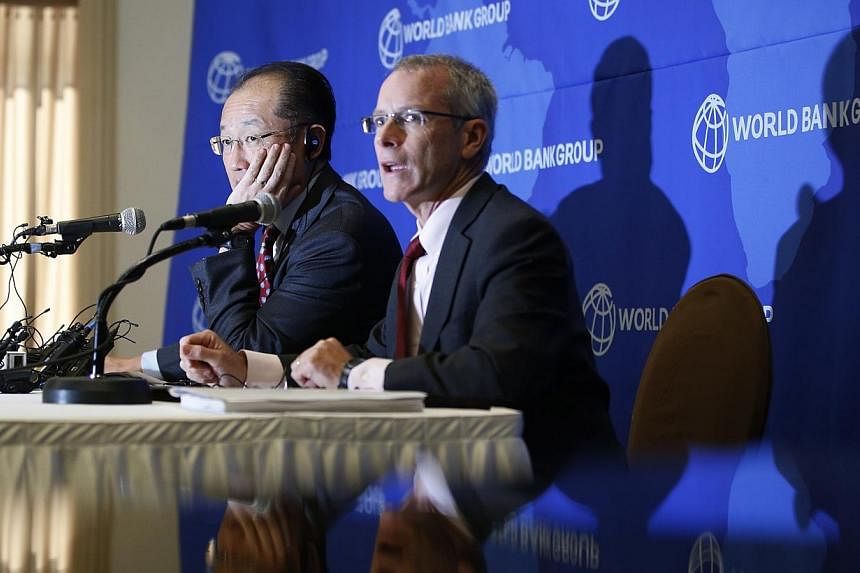SEOUL (Reuters) - Asian countries are not contributing enough to the global effort to fight Ebola, despite having a wealth of trained medical personnel who could help stop the spread of the deadly virus, World Bank Group president Kim Jim Yong said on Tuesday.
"Many countries in Asia who could help simply are not, especially when it comes to sending health workers," Mr Kim told a news conference in Seoul. "I call on leaders across Asia to send their trained health professional teams to the three West African countries."
South Korea has pledged to contribute US$5.6 million (S$1.18 million) dollars to combat the virus, and both Japan and China have sent equipment or medical staff to the Ebola-stricken countries in West Africa. China has so far donated 750 million yuan (S$158 million) to 13 African countries and international organisations to combat Ebola, according to the government. It has also sent hundreds of health workers.
But the overall response from Asia has lagged contributions from the United States, which has sent thousands of troops and pledged $1 billion, and other Western states. "We need thousands of health workers, and we're going to need them over the next six months to a year. The fight against Ebola is not over until we get to zero cases in those three countries," Mr Kim said.
Thousands of health-care workers are needed to help combat the most deadly outbreak of Ebola since records began in 1976. The virus has killed nearly 5,000 people, mainly in the West African countries of Liberia, Guinea and Sierra Leone.
Some Asian countries have introduced stricter border controls in response to the virus, and isolated North Korea has closed its borders and introduced mandatory 21-day quarantine for all foreigners visiting the country.
Mr Kim said focusing on border control alone was akin to being inside a smoke-filled room in a burning house and only putting "wet towels under the door".
"The world needs to put out the fire because if it doesn't, Ebola could spread to any country, including those here in Asia."

